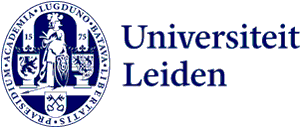
How do we stop homophobia at sports clubs?
Not all gay and lesbian students feel equally safe at their sports clubs. ‘Homo’ is used almost unthinkingly as a term of abuse and players often face homophobic comments. What can sports clubs and teams do to make sure everyone feels safe when playing sports?
May 17 is international day against homophobia, biphobia, interphobia and transphobia+, also known as IDAHOBIT. On this day LGBT+ organisations draw attention to homophobia and how this has no place in a fair and just society. Looi van Kessel from the University’s LGBT+ Network explains what makes people feel unsafe when playing sports and gives tips on how sports clubs can tackle this.
Why don’t all gay and lesbian athletes feel safe at their sports clubs?
‘It’s mainly the flippancy with which the word homo or gay is used as a term of abuse. This can be within a team, towards the opponent or from the spectators. It’s always linked to something negative, like missing a goal for instance. You also see homophobia in how teammates treat one another off of the pitch. Sometimes they don’t want to get changed in the same changing room as someone who has just come out. They’re afraid they’ll want to touch or have sex with them, which is obviously absurd!’
‘Gay and lesbian athletes don’t feel at ease, which is a real shame because it stops you from using all your talents.’
What are the effects?
‘Gay and lesbian athletes don’t feel at ease, which is a real shame because it stops you from using all your talents. You have to be constantly on your guard and that takes a lot of energy. Teams lose a lot of talent if they don’t provide a safe space for gay and lesbian teammates.’
Which kind of sports club does this affect?
‘Football receives the most attention because it’s the number one sport in the popularity stakes. It has really tried to address this lately. But homophobia isn’t as high on the agenda in other team sports. Women’s football seems to be less affected. There are lots of lesbian role models in professional women’s football. The taboo on homosexuality is much less of a thing there.’
‘Teams should discuss the matter and set ground rules.’
What can teams and sports clubs do against homophobia?
‘Teams should discuss the matter and set ground rules. The same applies to sports clubs. You can discuss together where “homo” as a slur comes from, why people use it and what you as a team and sports club can do to stop using it as a term of abuse. You’d have to agree on behaviours that make everyone feel safe and that you’ll all use the changing room together without being childish about it. Once teams have set the ground rules, they can then call out other teams that make homophobic remarks. As the LGBT+ Network, we want to help get these conversations started at sports clubs.’
What else would help stop homophobia in sport?
‘Role models are important. If famous players come out of the closet, that has a huge effect. But that’s difficult. You need role models at amateur clubs because they can talk directly to club members.’
One such role model would be English professional footballer Jake Daniels. He announced this week that he is gay. ‘I’ve hated lying my whole life and feeling the need to change to fit in. I want to be a role model myself by doing this,’ he said on the BBC website.
Text: Dagmar Aarts
Photo: ANP
